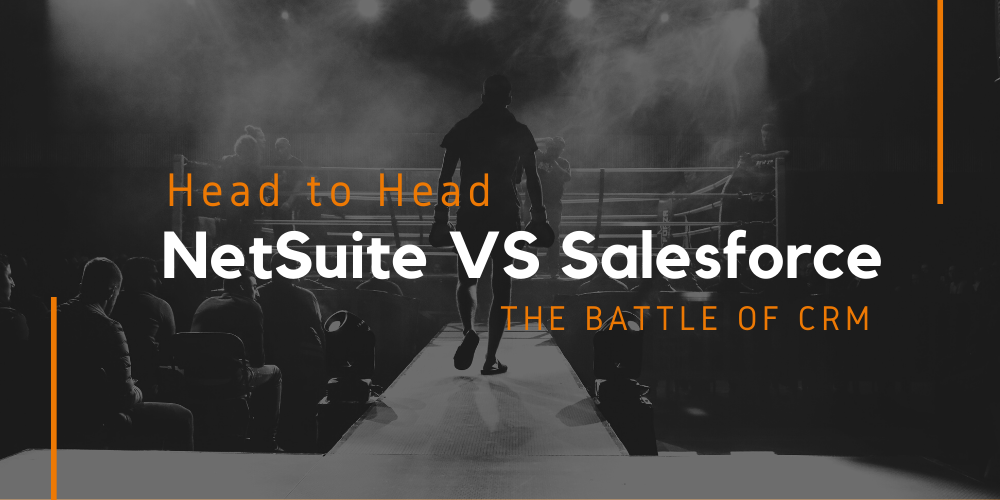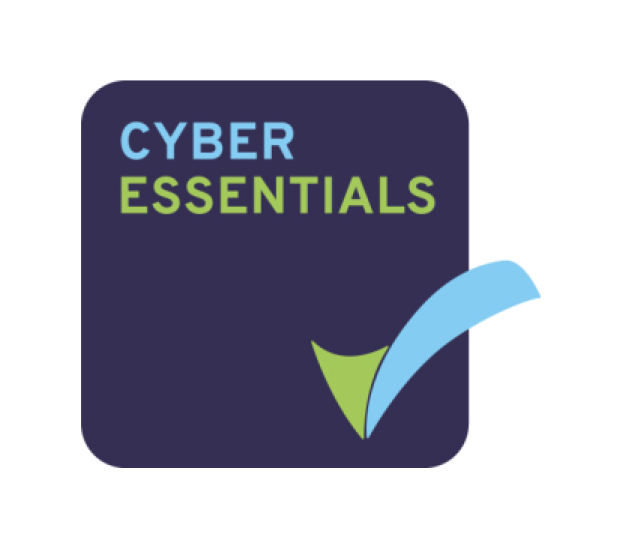
While NetSuite offers both ERP and CRM systems, the latest edition of our head-to-head series pits them against a CRM powerhouse. We’re onto a real heavyweight slugfest now, as it’s time for NetSuite vs Salesforce.
When you decide it’s time to implement a CRM solution, it’s crucial you choose the correct provider. After all, CRM is currently the fastest growing business software.
There’s an abundance of CRMs that can adequately perform core functions, such as tracking sales, analyzing data and managing customer information. Of course, it’s sometimes overwhelming making your final decision as there are so many options. That’s where we can help you! Here, we will compare two of the most prominent market leaders to help you make a well-informed decision that will suit the needs of your business.
NetSuite CRM+ vs Salesforce: how they compare
Salesforce may hold the title for most popular CRM software worldwide, according to market share, but that doesn’t always mean it’s the best product for your business. Following their takeover by Oracle, NetSuite is making waves to wrestle some of that market share in their favor.
Although they also offer a comprehensive ERP solution, NetSuite is proving a popular option with those looking to implement a new CRM. NetSuite CRM+ is a powerful solution which offers a complete view of customers in real time.
It was released in 2005 and marked NetSuite’s shift towards being a comprehensive business solution provider. The software company claims to be a complete, front-office solution that allows you to integrate your customer-focused activities.
Salesforce was initially released in 1999 as a sales automation software and was a pioneer of Software as a Service (SaaS). The system doesn’t solely focus on sales but also strives to improve your business’s use of analytics, community engagement, marketing, and mobile accessibility.
NetSuite CRM+ vs Salesforce: features
NetSuite CRM+
To make their product easily accessible, NetSuite breaks their CRM solution into four modules, each with specific features. NetSuite realizes that their customers require quick responses, so they’ve replaced manual processes with automated ones wherever possible.
| Module | Features |
| Sales Force Automation (SFA) |
|
| Customer service and support |
|
| Marketing automation |
|
| E-commerce and flexible customization |
|

Gain further insight into a NetSuite implementation
Download our annual, independent report of market trends, products, and sentiments within the NetSuite industry.
Salesforce
The CRM product splits into ‘clouds’, or modules to every other vendor. This way, businesses can pick and choose which functions they want to use by molding their solution to their business.
These ‘clouds’ focus on sales, marketing, and customer service. There are, however, additional modules that are available that can cater for other specific needs.
Sales Cloud allows a business to fully utilize its data by incorporating Salesforce’s Einstein artificial intelligence feature. This leads to a more efficient use of the data and optimizes your capacity to identify new leads by improving key skills, such as customer interactions and marketing campaigns. After all, the core principles of Sales Cloud are to help you close more deals, accelerate productivity, get more leads, and make important decisions.
Service Cloud is available to help put your customers’ needs first thanks to the use of convenient and straightforward case management tools.
Salesforce recognizes that customers nowadays want answers instantly. Because of this, they’ve welcomed Service Cloud; a module that has helped Salesforce become established as one of the most comprehensive customer service platforms thanks to its rapid problem-solving ability.
Then there is the Marketing Cloud module. This module strives to achieve what so many other marketing companies have failed to: a solution that oversees all of your marketing campaigns.
Within Marketing Cloud, a business can personalize a customer journey, allowing you to present your product to the customer without feeling like an intruding marketing pitch.
Of course, all three have their own features and capabilities.
| Cloud/Module | Features |
| Sales Cloud |
|
| Service Cloud |
|
| Marketing Cloud |
|
Other modules that are available include:
- Commerce Cloud Digital: an e-commerce platform.
- Einstein: an AI-driven analytics service.
- Pardot: a marketing automation service.
- Field Service Lightning: an app that manages employees and workflows.
- Community Cloud: a self-service portal builder.
- DMP: a data management platform.
- CPQ: a pricing management service.
NetSuite CRM+ vs Salesforce: how much does it cost?
Unfortunately, if you were looking for a price for NetSuite on the internet, you won’t find it. The software company doesn’t publicly list their prices but instead asks customers to contact them, or a provider, directly.
By doing this, a business can then tailor the software to best suit their own needs. Prices begin at $45/month, but the end price depends on which features are included in your final package.
Salesforce is a bit more transparent with their pricing. Like their NetSuite rivals, they offer a tailored service that helps businesses of all sizes mold a solution that best suits their needs and budget. Different licensing levels are available which entitle a user to more features, but at an additional cost.
The Lightning Essentials package offers an out-of-the-box solution that is available for up to five users each month. It’s only available for specific products and is designed for use by sole-traders and partnerships.
Lightning Professional provides a rigid and comprehensive CRM choice for teams of any size. There is also scope to customize the solution, which includes the same features as Lightning Essentials, as well as further benefits.
The most popular package for businesses is Lightning Enterprise. It is a very customizable edition of the software which is great for those who are looking for a purpose-built CRM solution.
Lastly, Lightning Unlimited is available for those who are looking for the most comprehensive package. With the highest level of support, online storage, capability, and potential, this package offers all the same features as the above options, as well as modules exclusive to this package.
Each ‘cloud’/module mentioned earlier has its own price range.
| Cloud/Module | Pricing |
| Sales Cloud | |
| Lightning Essentials | $25/user/month Up to five users allowed |
| Lightning Professional | $75/user/month |
| Lightning Enterprise | $150/user/month |
| Lightning Unlimited | $300/user/month |
| Service Cloud | |
| Lightning Professional | $75/user/month |
| Lightning Enterprise | $150/user/month |
| Lightning Unlimited | $300/user/month |
Although there are no figures available for Marketing Cloud, you can see approximate fee comparisons to the other modules. This ‘cloud’ is split into four areas: email, mobile and web marketing; B2B marketing automation; advertising; and social media marketing. Each module can be purchased together or separately, depending on your business needs.
NetSuite CRM+ vs Salesforce: pros and cons
Pros: NetSuite CRM+
- The software gives your business access to streamlined information throughout the lifecycle of the customer. It also simplifies your business’s lead-to-cash processes
- The productivity levels of your team can increase because of the 360-degree overview of your customer portfolio
- Sales performance can increase due to better forecasting, upselling and commission management tools
- Organizations as well as managing global sales are serviced
Cons: NetSuite CRM+
- The software doesn’t allow the integration of productivity tools, including Skype
- High support access fees and difficulties when trying to obtain customer support
- NetSuite doesn’t utilize personal AI assistants
Pros: Salesforce
- The software can also be used as a strategic advisor
- Service Cloud has proved a huge success
- Salesforce manages its customer orientation in-house and has a great reputation for its attitudes towards its customers
- The AppExchange features thousands of third-party integrations to help a business get more from the platform
- It offers robust eCommerce facilities
- The software’s educational network for users, Trailhead, is lauded as a great asset
Cons: Salesforce
- Smaller businesses may not be able to afford Salesforce due to increasing costs and contractual obligations
- As Salesforce is solely a CRM software, if you wanted to share your data with software such as your ERP solutions, you will need to install connectors which could drive the overall cost up
- The implementation or migration process can be lengthy
What do the CRM experts say?
One major tool that can help a company make an important decision such as which CRM solution to choose is feedback. We spoke to NetSuite and Salesforce experts to get their thoughts.
Charles Boyer, a NetSuite Project Manager for FilterEasy, says: “Salesforce has a lot of loyalty from its user base, and rightly so. The platform is powerful, relatively easy to use, and incredibly extendable. On top of all of this, Salesforce’s customer service is unrivaled.
“NetSuite CRM is also powerful, and it has the advantage existing in the overall NetSuite ecosystem – removing the need to pay operational expenses for two high-end platforms, as well as maintaining and extending integrations between them. It too can be customized and added to, but not as many off-the-shelf packages focused on NetSuite CRM seem to be out there compared to Salesforce.”
When implementing NetSuite for its ERP, Boyer also suggests considering the CRM too. He believes that, along with the solid core functions, the main selling point is the synergy that NetSuite can offer to sales funnels.
However, Benjamin Bolopue, who is a two-time Salesforce MVP and CRM Administrator for Quanex Building Products, believes that Salesforce wins the battle as there’s currently “no other CRM provider offers a so readily available, intuitive, and comprehensive toolset as Salesforce.”
“The Salesforce advantage can be split tripartite,” he says. “Trust, accessibility, and completeness. Salesforce continuously proves its trustworthiness via outstanding system reliability, transparency regarding system health and by enabling customers to easily create internal and external security models that meet or exceed their needs and industry standards.”
Bolopue also believes that Salesforce has gone on to increase the completeness of their CRM toolset by offering social engagement utilities, live agent/omnichannel support, their own CPaaS, and artificial intelligence-driven business analytics and user engagement.
“At the end of the day, if I’m tasked with selecting a CRM that’s robust, reliable, and highly declarative, I’m going with Salesforce every time,” he added.
Who wins the battle of CRMs?
NetSuite certainly has an edge over many CRM systems in the current market, thanks to its customization and simple integration of functionalities. However, Salesforce has a case for those businesses that are working on a smaller budget. In order to find out which suits your own business, it’s recommended that you take advantage of both free trials the companies offer.
Remember, we have also compared NetSuite to other software, so if you’re still unsure, check our blog series and see how NetSuite compares to Sage and Microsoft Dynamics.


